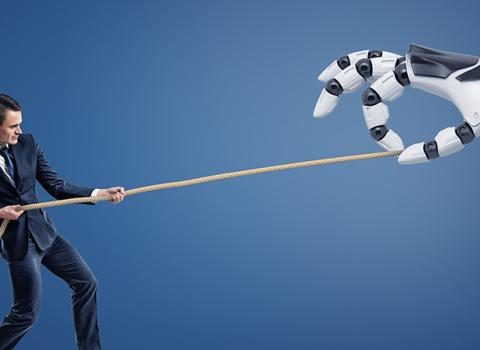
The company is particularly keen to partner with implant manufacturers, says Paula Gomes, Director of Operations. The company’s Acrobot Sculptor is a hands-on robotic tool. It does not take over the operation, but guides the surgeon's hand.
“The surgeon holds a handle on the device and moves a cutting tool to remove bone according to a surgical plan,” explained Paula Gomes, Director of Operations. “The device opposes resistance to the surgeon if the tool is about to enter a region which has been classified as ‘no-go’ in the pre-operative plan. This enables accurate bone surface preparation for the fitting of prostheses.”
The robot has been tested on elderly patients undergoing partial knee replacement. In a study, all the operations that used the robot were accurate to within two degrees, compared with 40 per cent of operations conducted by experienced surgeons, according to Acrobot.
The company was spun out by Imperial Innovations at the end of 1999 to exploit intellectual property generated in a research collaboration between Brian Davies, professor of medical robotics and Justin Cobb, professor of orthopaedics.
Other products from Acrobot include Acrobot Planner, launched in October 2005, which is a software tool for planning orthopaedic surgery. Another product, Acrobot Navigation, is a device that provides guidance to surgeons performing joint resurfacing or joint replacement.
The global market for orthopaedic devices is in the region of £9 billion, according to Gomes, while the arthroplasty (bone remodelling) market is expected to grow at between 8 and 15 per cent per annum for the next 15 years.




 A unique international forum for public research organisations and companies to connect their external engagement with strategic interests around their R&D system.
A unique international forum for public research organisations and companies to connect their external engagement with strategic interests around their R&D system.